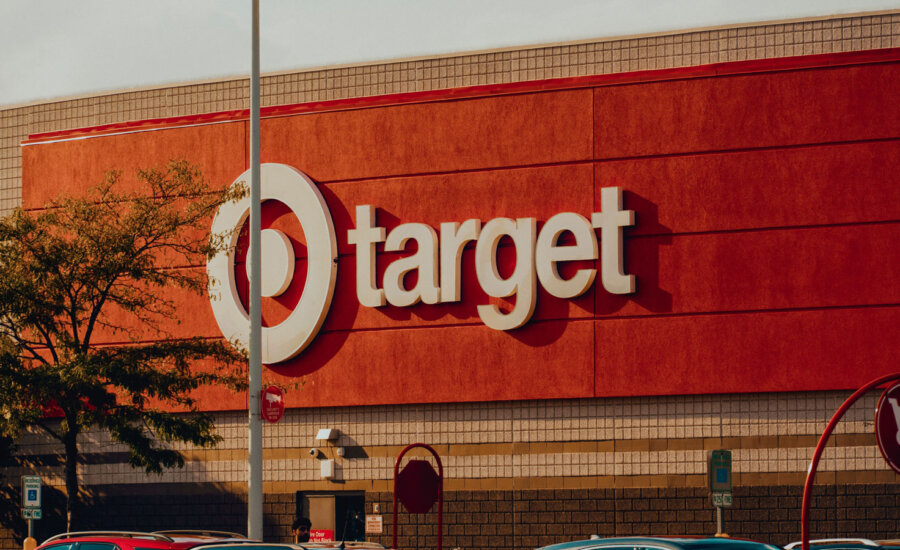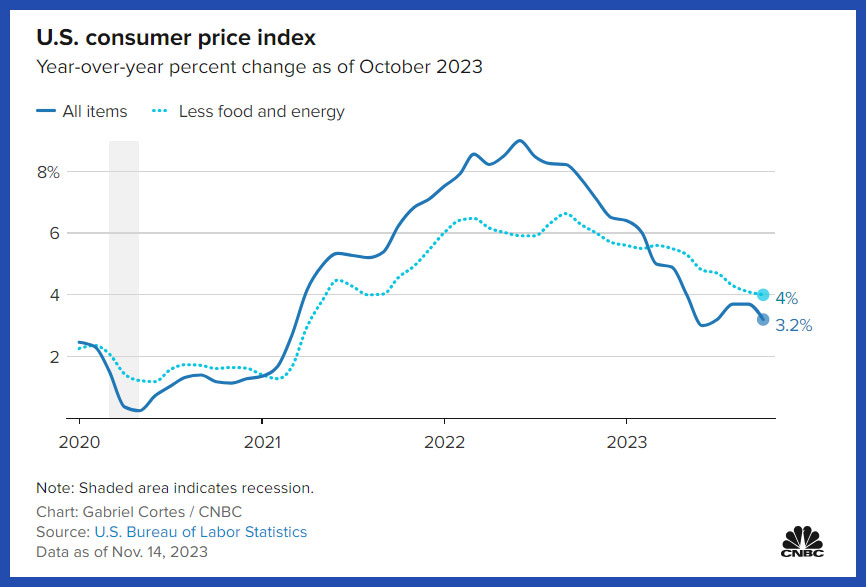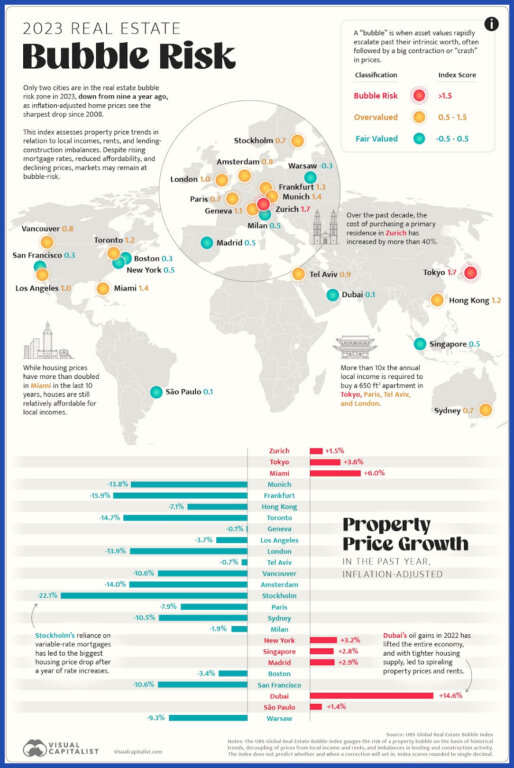Making sense of the markets this week: November 19, 2023
Target’s up, Walmart’s down, stocks rise as inflation falls, and insurance companies thrive as grocers stumble. Also, how’s that housing bubble?
Advertisement
Target’s up, Walmart’s down, stocks rise as inflation falls, and insurance companies thrive as grocers stumble. Also, how’s that housing bubble?

Kyle Prevost, creator of 4 Steps to a Worry-Free Retirement, Canada’s DIY retirement planning course, shares financial headlines and offers context for Canadian investors.
The big headlines in U.S. retail this week centred around Target shares seeing a massive 18% spike, while Walmart shares came down over 8% after Thursday’s earnings announcement. However, we look behind those headlines to the context of those moves to get the real story.
All earnings numbers in this section are in USD.
While the quarter was obviously a great redemption story for Target, these volatile stock moves were based on sky-high expectations for Walmart (the stock hit an all-time high this week before the earnings announcement) and a relatively terrible year for Target so far. It’s still down over 14% year to date even after the earnings bump.
Target’s C-suite commented that its improved margins were due to progress made on inventory management and reducing expenses, as well as reduced shrinkage (theft).
Walmart’s team stated the company is still worried about pressure on the U.S. consumer despite higher online sales (24% increase in the U.S. and 15% worldwide this year) and increased grocery revenues.
Walmart CEO Doug McMillon believes price relief might soon be in the cards, saying that general merchandise and grocery prices should, “start to deflate in the coming weeks and months.” He said, “In the U.S., we may be managing through a period of deflation in the months to come. And while that would put more unit pressure on us, we welcome it, because it’s better for our customers.”
We’re fairly certain that Walmart will be able to resist that “unit pressure” and that it will manage to satisfy both shareholders and customers, given its track record over the years.
If you needed confirmation that U.S. interest rates are still foremost on investors’ minds, this week’s Consumer Price Index (CPI) from the U.S. Department of Labor was a big checkmark. Stocks rallied after Wednesday’s news that headline CPI was down to 3.2% annually (before coming down slightly later in the day’s trading session).

The main takeaways from the CPI report included:
Market watchers at CME Group report that the chances of any immediate interest rate hikes by the U.S. Fed have declined to nil. As you might expect, this confidence drove down long-term bond rates and raised future expectations for corporate earnings (and share prices).
If this whole inflation thing still has you stumped, here’s a humorous three-minute take from the gang at It’s Always Sunny in Philadelphia:
Four familiar names from the world of Canada’s insurance and grocery oligopolies reported earnings this week. It was better to be an insurer than a grocer over the past few months, as government pressure to lower grocery margins may have played a part in reduced earnings.
Here’s a summary of the earnings news in Canada this week.
Metro’s earnings miss pulled shares down nearly 7% on Wednesday, while Loblaw shares were down a little over 2% despite its earnings beat. Both Canadian grocery giants credit increased pharmacy sales of weight-loss drugs and cold medication for top-line growth. Cosmetics sales were also noted as an area of growth. Perhaps due to the “Lipstick Index” effect of small luxury goods gaining appeal in lean times?
Both companies commented on two trends: increased traffic to discount stores and the rising prices of food suppliers.
Metro CEO Eric La Fleche stated its food-basket inflation measurement was 5.5%. No doubt this was in reference to federal government pressure to reduce prices in the grocery space.
With both Sunlife and Power Corp. beating earnings expectations this week, it was no surprise to see share prices rise more than 6% over the last five trading days. These positive earnings reports largely mirror those of competitor Manulife (MFC/TSX), which we wrote about last week. For more information on Loblaws and Metro check out my take on investing in Canadian retail stocks at MillionDollarJourney.ca and MoneySense’s “Best dividend stocks in Canada.”
The folks at Visual Capitalist created yet another cool visual. This one looks at how the world’s housing markets have changed over the past year. Canadian home buyers may take some solace in the fact there are a few other places rated more overvalued than Toronto and Vancouver. Although, not many.

Here are six takeaways we gleaned when looking at the infographic:
This data is sourced by the UBS Global Real Estate Bubble Index and is based on each city’s historical trends, housing prices relative to local income and rents and imbalances in construction activity versus market demand. Consequently, it’s reducing several variables down to a single number. But it’s a pretty interesting number nonetheless.
Share this article Share on Facebook Share on Twitter Share on Linkedin Share on Reddit Share on Email